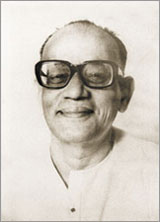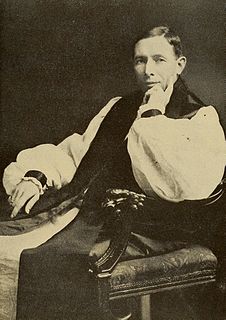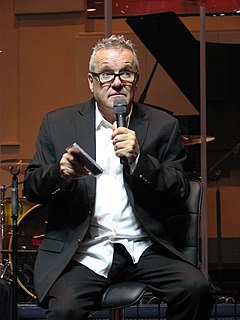A Quote by Prabhat Ranjan Sarkar
What are you to do? You are always to remember that you are the child of a Great Father. You must not think that you are a sinner, that you are a degraded person. If you think that you are a sinner, it means you are meditating on sin! When sin has become the object of your meditation, you will become a sinner, because a person becomes just like the object of his or her ideation. We become the object of our meditation.
Related Quotes
If you always meditate on sin, "I am a sinner, I am a sinner," actually you will become a sinner. The psychological approach is, you should forget it - even if you are a sinner, you should think, "I am the son of a Great Father, I am the daughter of a Great Father." Thus you are meditating on the Great Father, and a day is sure to come when you will become one with your Great Father.
Meditation is object-less. If you use any object, then it is not meditation; it becomes thinking. It becomes contemplation; it becomes reflection, but not meditation. This is the most essential point to be understood. This is the essence of a meditative state: that it is object-less. Only consciousness is there, but not conscious ABOUT anything. Consciousness without being conscious of anything - this is the nature of meditation.
The cliché, God hates the sin but love the sinner, is false on the face of it and should be abandoned. Fourteen times in the first fifty Psalms alone, we are told that God hates the sinner, His wrath is on the liar, and so forth. In the Bible, the wrath of God rests both on the sin (Romans 1:18ff) and on the sinner (John 3:36).
Sannyas is celebration of life, and sin is natural: natural in the sense that you are unconscious - what else can you do? In unconsciousness, sin is bound to happen. Sin simply means that you don't know what you are doing, you are unaware, so whatsoever you do goes wrong. But to recognize that "I am a sinner" is the beginning of a great pilgrimage. To recognize that "I am a sinner" is the beginning of real virtue. To see that "I am ignorant" is the first glimpse of wisdom.
Concluding a short series on sin: It is appalling to think of a power so strong that it can annihilate with the irresistible force of its grinding heel; but it is inspiring to consider an Almightiness that transforms the works of evil into the hand-maidens of righteousness and converts the sinner into the saint. And it is this latter power which eternal Love possesses and exhibits. He persistently dwells in the sinner until the sinner wakes up in His likeness and is satisfied with it.
Guilt simply says that you are a sinner. And the feeling of shame simply shows you that you need not be a sinner, that you are meant to be a saint. If you are a sinner it is only because of your unconsciousness; you are not a sinner because the society follows a certain morality and you are not following it.
Meditation means you don't have anything, any object to think about. You are just in a state of absolute aloneness. You don't have anything on which you can focus yourself - not a sutra, not a mantra, not any great value of life, just pure space all around you. Then you are in meditation. Meditation is never about something. Meditation is a state.




































